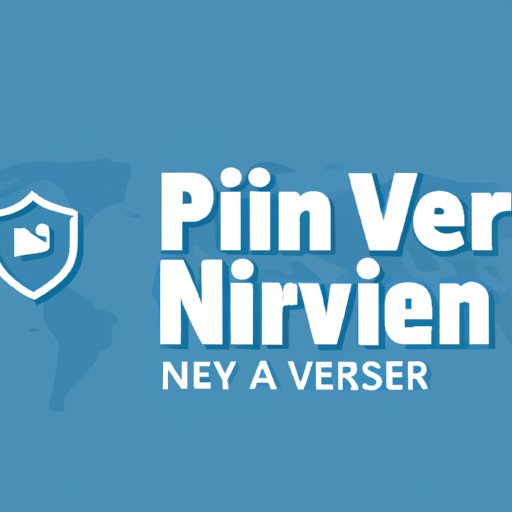
Introduction
If you’re concerned about your online privacy and security, you’ve probably heard of virtual private networks (VPNs). A VPN is a tool that enhances your online protection by encrypting your Internet connection and routing your traffic through an intermediary server. However, not everyone can afford to pay for a premium VPN service. Fortunately, there are various ways to get a free VPN. In this article, we’ll explore the top 5 free VPN services, how to use them, and the legal aspects involved.
Ways to Get a Free VPN
There are several ways to get a free VPN service, such as signing up for free trials or taking advantage of limited free versions. Some VPN providers also offer promotions that provide free access for a certain period. However, it’s important to note that free VPN services come with several risks that can compromise your online security. Free VPNs may sell your data to third-party advertisers, which could make you vulnerable to hacking, malware, and identity theft.
Top 5 Free VPN Services
Here is a list of the top 5 free VPN services you may consider:
- Free VPN
- ProtonVPN
- Windscribe VPN
- TunnelBear
- Hotspot Shield
Free VPN is a service that provides unlimited bandwidth and no registration required. It also supports P2P connections, which make it ideal for file sharing. However, it’s not suitable for video streaming, and the number of servers is limited.
ProtonVPN offers unlimited bandwidth, no data logging, and military-grade encryption. It’s also available on multiple platforms, including Windows, Mac, and Linux. However, the free version only provides access to servers in three countries, and speeds may be slower than paid versions.
Windscribe VPN offers a generous 10GB of data allowance per month, making it ideal for occasional use. It also provides ad and malware blocking. However, the number of servers is limited, and the speeds may be slower than paid versions.
TunnelBear offers user-friendly software, strong encryption, and a no-logs policy. It also provides access to servers in over 20 countries. However, the data allowance is limited to 500MB per month, which may not be enough for heavy use.
Hotspot Shield provides fast servers, a user-friendly interface, and military-grade encryption. It also offers a free version with unlimited data allowance, but with ads support. However, the free version has fewer features than the premium version, and there are only a few servers available.
How to Take Advantage of Free Trials
Many premium VPN providers offer a free trial period that allows you to test the service before committing to a subscription. To take advantage of a free trial, you need to sign up and download the appropriate software. It’s important to note that you may need to provide payment information to sign up for a free trial, which means you need to cancel the subscription before the trial ends to avoid being charged.
When choosing a VPN provider, look for the following features:
- Fast connection speeds.
- Excellent customer support.
- Strong encryption and data protection.
- Large number of servers in multiple countries.
- User-friendly software interface.
How to Use Free VPN Services
To use a free VPN service, you need to follow these steps:
- Choose a free VPN service and download the software for your platform.
- Install the software on your device.
- Create an account or login to an existing account if necessary.
- Configure the settings, including your preferred server location, encryption type, and protocol.
- Connect to the server by clicking the “Connect” button.
Pros and Cons of Using Free VPN Services
Using a free VPN service has its advantages and disadvantages. Here are some of the pros and cons:
- Pros:
- Free to use.
- Provides basic online security and privacy.
- May allow access to content that may be restricted in certain countries.
- Cons:
- May contain ads and malware.
- May sell your data to third-party advertisers.
- May be slower than paid versions.
- May have limited servers and locations.
Legal Aspects of Using Free VPN Services
When using a VPN service, you need to be aware of the legal aspects involved. While VPNs are legal in most countries, they may be subject to privacy and copyright infringement laws. Some VPN providers may also keep logs of your online activity, which can be used against you in legal proceedings. To protect yourself, always read the privacy policy and terms of service of the VPN provider before signing up.
Conclusion
A free VPN can be a useful tool for enhancing your online security and privacy. However, it’s important to choose a reputable provider and to be aware of the risks involved. Always read the privacy policy and terms of service before signing up, and make sure the provider you choose meets your specific needs. By following these tips, you can use a free VPN service safely and effectively.




